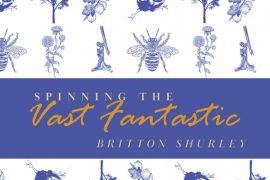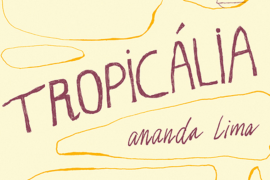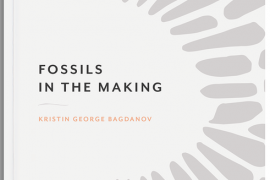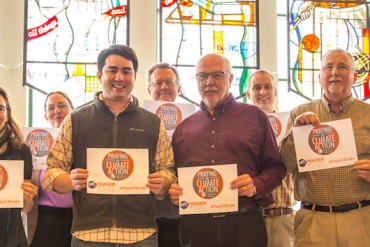I started reading Advantages of Being Evergreen at my fiance’s therapy appointment—train horns blared for the hour it took me to read it, yet I barely even noticed the boisterous sounds. Within the pages of Advantages of Being Evergreen, I found a wildness befitting the fall weather, but I also found a softness that my queer heart longs for when it comes to reading other LGBTQ+ writers. The interesting thing about evergreens is that they do indeed stay green throughout the year and, I do believe, that Bendorf’s book will be just as everlasting.
What hit me the hardest is the full range of emotion in Bendorf’s work—if the dismantling of confederate flags doesn’t wet your whistle, then perhaps the soft lines of rivers and finding a home within your own body will. Now, don’t get me wrong, Bendorf’s work is far from angry. The poem “Rain and Ticks In Tennessee” stood out to me because in its softness was such a powerful act of resistance. Poetry in and of itself is an act of resistance, and I found that Advantages of Being Evergreen is an act of survival, too.
Not only are Bendorf’s poems breathtaking, but they can also play at your heartstrings. As someone born in Florida, what happened at Pulse nightclub hit close to home and left me feeling empty. In Bendorf’s poem “Ghost Ship Novena Inside A Year-Long Funeral” we get a glimpse of his own mourning for fellow queer and trans creatives: “fire, you / good for nothing mother / fucker all you do is burn—.” In that moment, my soul felt heavy, and I could really feel the grief in Bendorf’s words. Queer and trans folks face tragedies day by day—we don’t need reminders from cis or het folks to tell us of these tragedies—but to feel that anger, that grief, that heartache from one of our own is transcendental.
If there’s one thing I want the reader to take away from reading this review, it’s that Bendorf’s poems remain elegant and thoughtful. There is no rawness to his work. Everything is carefully crafted to the point that his writing reminds me of a marble sculpture—done meticulously with the utmost attention to detail. Take his poem “Breath I” for example, a sort of list poem, where Bendorf starts with the letter “A” and goes all the way to the letter “W”: “almost alone animal away / become bed begin behind believe / benign billay black bridge burning / calls care carlos carry / circle clear confess daddy.” These words alone may have no meaning, but when brought together, create small stories that culminate when they all come together. Each word has been chosen and placed carefully—one can tell by the way that the poem comes together and bleeds into the matching poems “Breath I, I” and “Breath I, I, I.”
The poems in Advantages of Being Evergreen that I hold closest to my heart are the ones that deal with gender. As someone who only recently came out as transgender, finding and reading poets that are also trans is so important to me. Each experience is unique, diverse, and full of life—I can say all of this is true for Bendorf’s work. “Long Shot With A Girl Who Is Also Me” is one of those vibrant, emotional poems that honest to goodness made me cry because I related with it so much: “My parents wanted / winter past the mount-/ ains, a perfect closed / flame as a beating. / Why can’t I remember / the girl out of me? I go / up all the way, / it was almost. / I too have walked / on the side of / coming headlights, / unable to look/ away.” The very idea of not being able to look away from coming headlights as a trans person resonated within me in a way that’s hard to describe. I personally struggle with remembering the girl out of me, and I feel that poems like these being out in the world are so, so important for other people to see. Most of all, this poem made me feel less alone.
I’m going to continue focusing on the queer poems in this book. If any of you have ever had the pleasure of meeting Bendorf, one would immediately notice how vibrant of a person he is. His poems are saturated with color, saturated with life, and you can see that in every poem he writes—but I especially found this to be true for the poems that revolve around queerness and gender. The poem “This Multitude We’ve Become” resonates with me deeply because of the self love it reflects: “I wish for / all of us / bearded mon- / sters to know / we can be / soft too, loved too.” This is such an important message and my heart feels lighter having read it. The message that trans men and otherwise gender non-conforming people can also be soft, are also worthy of love, is so important in this political climate.
When I said that Bendorf gives us a full range of emotion in his work, I very much meant it. While there is happiness, sadness, grief, and longing in it, there is also humor too. The poem “Dream” starts out with a funny image, “The staplers looked like confetti I tell her and I can tell by the look on her face / that the sudden plurality of staplers begs an explanation.” As the poem continues, it becomes apparent that the speaker of the poem is at some sort of therapy appointment or something similar. The ending is what really gets me though, “Even in my nice dream / my stapler is the dick I don’t have and some part of me wants to say sorry to ruin / everything but the red one I reached for was sexy raw like meat so I’m not / sorry at all.” There’s something to be said about cis people writing about us like we’re all tragedies—Bendorf showed me that humor can be found in transness too—and that the plurality of staplers is pretty damn funny.
This has been a roller coaster of a review, but I hope the reader comes to understand that there’s so, so much packed into this one, single book. The wilderness, the joy, the grief, the love, the humor, the remembering—in this world’s political climate, Bendorf’s work is relevant and necessary. I would recommend this book to anyone that has a strong desire for the wilderness, for anyone that has a strong desire for softness and honesty. Advantages of Being Evergreen took me into the wilderness, took me into warm and safe arms, and I honestly wish I would never find my way out of the woods.





